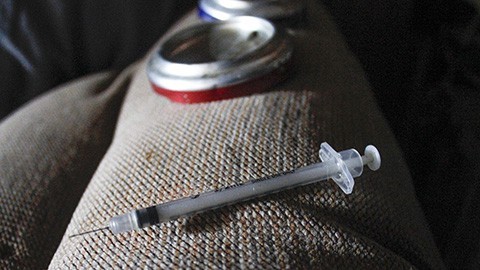In Pennsylvania, the opioid epidemic kills an average of seven people per day.
Addiction involves a complex interplay of brain circuitry, genetics, and environmental factors. Like other diseases, it can be quiet and barely noticed, or it can tear families apart and turn worlds upside down. My heart has broken as friends and colleagues have suffered through near-fatal accidents and tragic losses.
As a nurse in a busy Emergency Room, I've treated my share of addicts. But, in the ER -- where we typically see overdoses and other emergencies -- these patients are usually in and out.
I have a special respect for the nurses and health professionals who work with struggling addicts for the long haul.
At specialized healthcare facilities for addiction and mental illnesses, dedicated nurses and technicians treat patients during debilitating withdrawals, challenging recovery programs, and heartbreaking relapses. Their work requires special skill sets, both medical and social, and it can be physically and emotionally exhausting.
You would think they would be treated with the same respect as nurses and health professionals who treat anything else -- but they're not.
As the opioid crisis expands and these specialty hospitals take in more patients -- and more money -- nurses and technicians in this field remain underappreciated. Their wages and benefits lag far behind traditional hospitals. They're stretched too thin as they take on larger patient loads and more severe cases.
At Eagleville Hospital, a specialty treatment hospital outside of Philadelphia, Registered Nurses and mental health technicians earn 20-30% less than RNs and other professionals at a traditional hospital only a few miles up the road. Not surprisingly, the hospital therefore struggles to recruit and retain staff, which means that the patients -- vulnerable addicts who need stability -- are left to endure shortages and high turnover.
It's not due to a lack of money. The CEO at that hospital was just rewarded with a 17% raise, and the government is now dishing out more money to combat the opioid epidemic.
What it really comes down to, I think, is a lack of respect.
Patients suffering from addictions and mental illnesses are chronically underserved. As a society, we too often fall back into old and disproven stereotypes that portray sufferers as morally bankrupt or unwilling to change. These patients, who are among our most vulnerable, are unfortunately treated as second class citizens. We pay lip service to battling addiction, but we don't back it up with the necessary resources.
That's why I was so proud when the nurses and health professionals at Eagleville began standing up to bargain for better conditions for their patients. They're not waiting for legislators to take action. Instead, they're demanding that hospital administrators work with them to make real improvements.
Addiction is a chronic disease. The people who are suffering deserve quality care. They need it if they're going to survive and recover. This is especially true during the low points and high-risk moments when these individuals end up in ERs or at specialty treatment hospitals.
We owe it to them and to their loved ones to ensure they have the best chance at recovery.
That means providing bedside nurses and treatment technicians with full staffs and proper resources.
As cities and towns across the country battle the opioid epidemic, let's not forget these dedicated medical professionals who work every day on the front lines. Let's show them the respect they deserve, and let's honor them -- and their patients -- by giving them what all nurses want: the tools to do their jobs properly.

